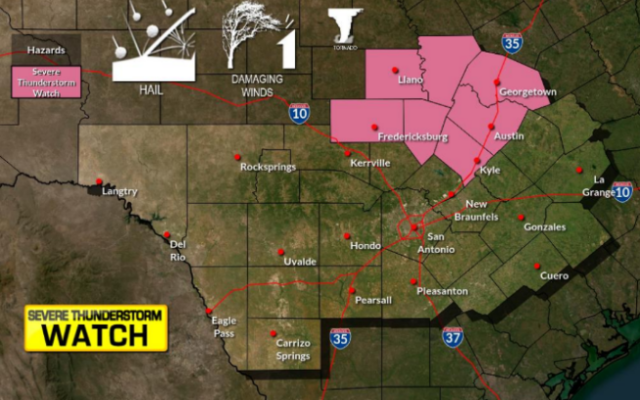Ukraine: Russian missile kills 30 civilians at train station

CHERNIHIV, Ukraine (AP) — Ukrainian leaders predicted more gruesome discoveries would be made in reclaimed cities and towns as Russian soldiers retreat to focus on eastern Ukraine, where officials said a Russian rocket attack on a packed train station used to evacuate civilians killed over 30 people Friday.
Hours after warning that Ukraine’s forces already had found worse scenes of brutality in a settlement north of Kyiv, President Volodymyr Zelenskyy said that “thousands” of people were at the station in Kramatorsk, a city in the eastern Donetsk region, when it was hit by a missile.
Zelenskyy accompanied a social media post with photos that showed a train car with smashed windows, abandoned luggage and bodies lying in what looked like an outdoor waiting area. Authorities said the strike wounded more than 100 people.
“The inhuman Russians are not changing their methods. Without the strength or courage to stand up to us on the battlefield, they are cynically destroying the civilian population,” the president said. “This is an evil without limits. And if it is not punished, then it will never stop.”
After failing to take Ukraine’s capital, Russia has shifted its focus to the Donbas, a mostly Russian-speaking, industrial region in eastern Ukraine where Moscow-backed rebels have been fighting Ukrainian forces for eight years and control some areas.
Ukrainian officials warned residents this week to leave as soon as possible for safer parts of the country and said they and Russia had agreed to establish multiple evacuation routes in the east. Kramatorsk is located in government-controlled territory.
In his nightly video address, Zelenskyy predicted more gruesome discoveries would be made in northern cities and towns the Russians withdrew from the concentrate on eastern Ukraine. He said evidence of civilians killed at close range and dumped on streets in Bucha already had surfaced in a worse way in Borodianka, another settlement outside the capital.
“And what will happen when the world learns the whole truth about what the Russian troops did in Mariupol?” Zelenskyy said late Thursday, referring to the besieged southern port that has seen some of the greatest suffering since Russia invaded Ukraine. “There on every street is what the world saw in Bucha and other towns in the Kyiv region after the departure of the Russian troops. The same cruelty. The same terrible crimes.”
Spurred by reports that Russian forces committed atrocities in areas surrounding the capital, NATO nations agreed to increase their supply of arms after Ukraine’s foreign minister pleaded for weapons from the alliance and other sympathetic countries to help face down an expected offensive in the east.
Bucha Mayor Anatoliy Fedoruk said investigators found at least three sites of mass shootings of civilians during the Russian occupation. Most victims died from gunshots, not from shelling, he said, and some corpses with their hands tied were “dumped like firewood” into mass graves, including one at a children’s camp.
Fedoruk said 320 civilians were confirmed dead as of Wednesday, but he expected more as bodies are found in the city that was home to 50,000 people. Only 3,700 remain, he said.
In his nightly address, Zelenskyy said Bucha’s horrors may be only the beginning. In the northern city of Borodianka, just 30 kilometers (20 miles) northwest of Bucha, he warned of even more casualties, saying “there it is much more horrible.”
Ukrainian and several Western leaders have blamed the massacres on Moscow’s troops. The weekly magazine Der Spiegel reported Germany’s foreign intelligence agency intercepted radio messages among Russian soldiers discussing killings of civilians. Russia has falsely claimed that the scenes in Bucha were staged.
A Kremlin spokesman said Thursday that Russia has suffered major troop casualities during its six-week military operation in Ukraine.
“Yes, we have significant losses of troops and it is a huge tragedy for us,” Kremlin spokesman Dmitry Peskov told Sky News.
Peskov also hinted the fighting might be over “in the foreseeable future,” telling Sky that Russian troops were “doing their best to bring an end to that operation.”
On Thursday, a day after Russian forces began shelling their village in the southern Mykolaiv region, Sergei Dubovienko, 52, drove north in his small blue Lada with his wife and mother-in-law to Bashtanka, where they sought shelter in a church.
“They started destroying the houses and everything” in Pavlo-Marianovka, he said. “Then the tanks appeared from the forest. We thought that in the morning there would be shelling again, so I decided to leave.”
Hundreds of people have fled villages in the Mykolaiv and Kherson regions that are either under attack or occupied by Russian forces.
Marina Morozova and her husband fled from Kherson, the first major city to fall to the Russians.
“They are waiting for a big battle. We saw shells that did not explode. It was horrifying,” she said.
Morozova, 69, said only Russian television and radio was available. The Russians handed out humanitarian aid, she said, and filmed the distribution.
Anxious to keep moving away from Russian troops, the couple and others boarded a van that would take them west. Some will try to leave the country, while others will remain in quieter parts of Ukraine.
The United Nations estimates the war has displaced at least 6.5 million people within the country.
The U.N. refugee agency, UNHCR, said that more than 4.3 million, half of them children, have left Ukraine since Russia launched its invasion on Feb. 24 and sparked Europe’s largest refugee crisis since World War II.
The International Organization for Migration estimates more than 12 million people are stranded in areas of Ukraine under attack.
The United Nations’ humanitarian chief told The Associated Press on Thursday that he’s “not optimistic” about securing a cease-fire after meeting with officials in Kyiv and in Moscow this week, given the lack of trust between the sides. He spoke hours after Russian Foreign Minister Sergey Lavrov accused Ukraine of backtracking on proposals it had made over Crimea and Ukraine’s military status.
Two top European Union officials and the prime minister of Slovakia traveled to Kyiv on Friday, looking to shore up the EU’s support for Ukraine. Prime Minister Eduard Heger said he, EU Commission President Ursula von der Leyen and EU foreign policy chief Josep Borrell have trade and humanitarian aid proposals for Zelenskyy and his government.
Part of that, Heger says is “to offer options for transporting grains, including wheat.” Ukraine is a major world wheat supplier and Russia’s war on Ukraine is creating shortages, notably in the Middle East.
Western nations have stepped up sanctions, and the Group of Seven major world powers warned that they will keep adding measures until Russian troops leave Ukraine.
The U.S. Congress voted Thursday to suspend normal trade relations with Russia and ban the importation of its oil, while the EU approved other new steps, including an embargo on coal imports. The U.N. General Assembly, meanwhile, voted to suspend Russia from the world organization’s leading human rights body.
U.S. President Joe Biden said the U.N. vote demonstrated how “Putin’s war has made Russia an international pariah.” He called the images coming from Bucha “horrifying.”
“The signs of people being raped, tortured, executed — in some cases having their bodies desecrated — are an outrage to our common humanity,” Biden said.
___
Schreck reported from Kyiv, Ukraine. Associated Press journalists around the world contributed to this report.
___
Follow the AP’s coverage of the war at https://apnews.com/hub/russia-ukraine
You Might Also Like



